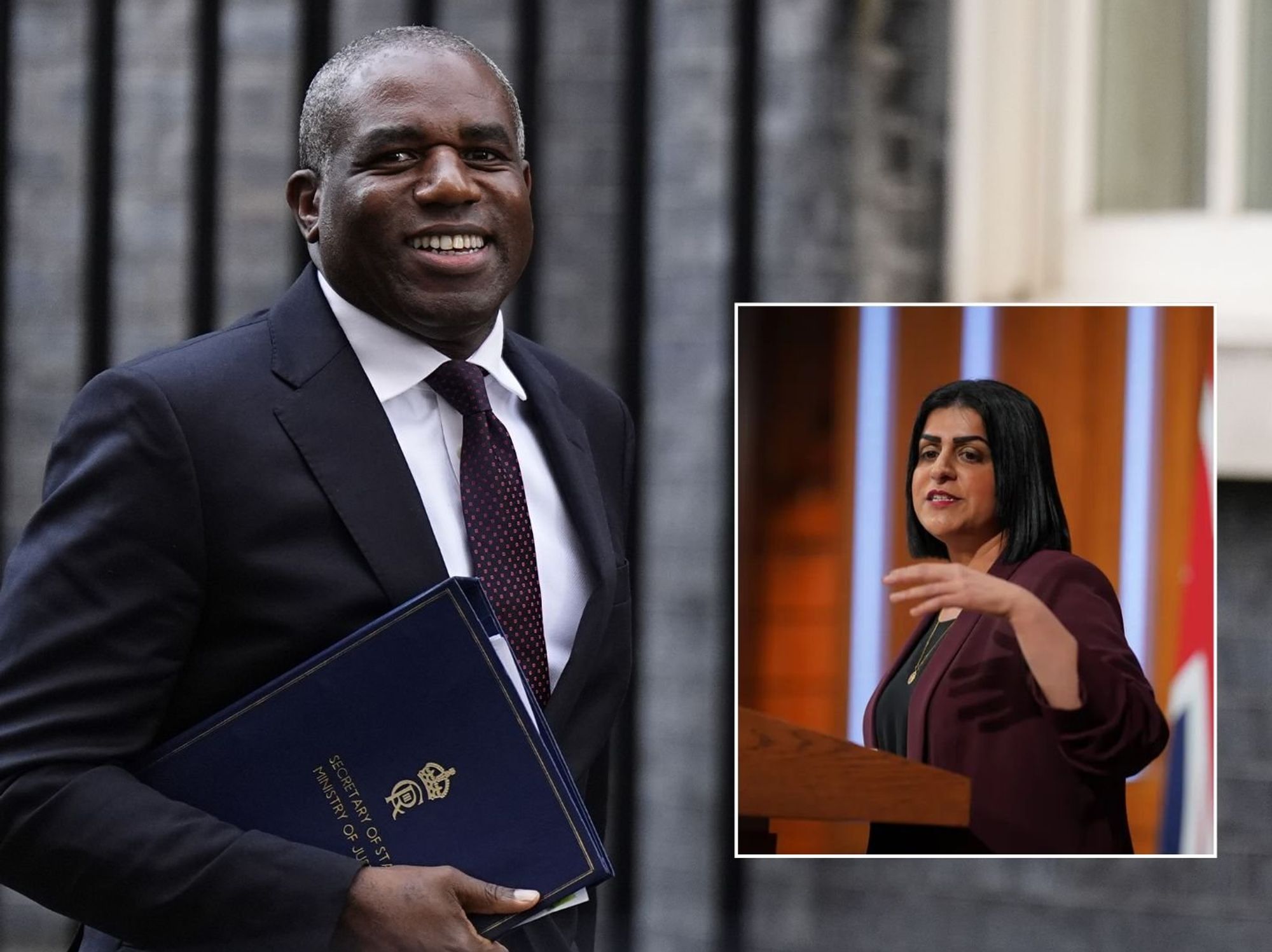Tommy Robinson is guilty but is 'solitary confinement' a disproportionate punishment - Charlie Peters analysis

He’s a civil offender but he is set to be treated like a terrorist due to a lack of prison safety
Don't Miss
Most Read
Love or loathe him, all can agree that Tommy Robinson faces a torrid time as he is committed to imprisonment after pleading guilty to contempt of court.
At Woolwich Crown Court this week, we heard from Mr Justice Johnson that Robinson’s breaches of an injunction following a libel trial that he lost were so serious that any suggestion of a non-custodial sentence was impossible.
The court heard from Aiden Eardey KC, the barrister representing the Solicitor General, that Robinson was disregarding the law, thumbing off the courts, and that this was most egregiously expressed through a documentary he displayed at Trafalgar Square.
The court heard that, in 2021, he was ordered to pay £100,000 in damages and barred from repeating false allegations against Jamal Hijazi, then a schoolboy, who successfully sued him for libel.
The Solicitor General issued two contempt claims against Robinson earlier this year, claiming that he “knowingly” breached the order 10 times.
In court, the 41-year old Robinson admitted repeating the claims in six online interviews in 2023 and this year and a further four breaches relating to his film.
For Robinson’s defence, Sasha Wass KC said that Robinson was a journalist committed to bringing more information into the public, who passionately believed in freedom of speech and the freedom of the press.
But one aspect of Ms Wass’s mitigation submissions stood out in particular for me: how Robinson had fared during his last stint in prison.
He was previously jailed for another contempt of court breach after incidents at the crown court sitting in Canterbury and Leeds, a period of 3.5 months in which Wass said Robinson was held in “solitary confinement.”
There is technically no such thing as solitary confinement in the British prisons system, but some prisoners are held in more limited conditions either for their safety or if they pose a greater risk to other prisoners.
Robinson was held in such conditions during that last stint. Ms Wass detailed that it had an appalling impact on his mental health, with Robinson developing symptoms associated with depression, anxiety, and other mental health struggles. This diagnosis was read out in court.
Robinson’s notoriety is such that he is at grave risk in prison. Sources tell me that he is being held at Belmarsh Prison, which has a tunnel connecting directly to Woolwich Crown Court. The prison is notorious. It is feared. It’s where some of the world’s most dangerous killers and terrorists are held. Islamists that seek to radicalise others are kept in isolation. The double cat AA wing houses those prisoners who cannot be trusted to exist peacefully alongside others.
Robinson is being imprisoned for a civil offence. His offence is not criminal. The hearing was meant to be held at a civil court on the Strand in central London. Imprisonment for being a contemnor - the term applied to those who breach contempt rules - is usually held at Cat C or even D prisons, where inmates can leave in the daytime.
But the state cannot guarantee Robinson’s safety in those prisons. The prison system has a duty to take steps to keep all of its prisoners safe, but for Robinson that means being treated akin to a terrorist or a serial killer.
Mr Justice Johnson said yesterday that there is “no evidence that the recent releases of prisoners as a result of a change to early release provisions has substantially changed” the overcrowding in prisons.
Ian Acheson, the former head of security at HMP Wandsworth, told me the authorities will face ‘a big headache when dealing with Robinson' s custody.’
He said that on the one hand the offence for which he received a prison sentence is relatively minor and there is no record of him misbehaving in his previous sentence.
“That would suggest he should be held in conditions of low security or even open conditions. Against that, it's reasonable to conclude from his notoriety he may be at risk from others opposed to his worldview. His presence may also be seen as a potential rallying point for other prisoners, whatever he actually does. So the safe option for the greater good would be to use prison rules to segregate him in the interests of good order.
“While that reduces his potential to cause problems or be targeted and is perfectly lawful, it could be seen to be a disproportionate penalty to him as it heavily restricts his movement and participation in the prison regime.”
Mr Justice Johnson appears to agree with Acheson.
“He is well known. So are his views. They provoke considerable hostility.”
And so, “incarceration may be more onerous for him than for others.”
The judge said he took into account the impact of previous imprisonment on Robinson’s mental health, but fundamentally there is nothing he can do to change the dangerous nature of our failing prisons system.
Nobody is above the law and “egregious” and repeated breaches of contempt rules will land anyone in jail. But for Robinson, that punishment will be disproportionate. Due to its failure to maintain an adequate and safe prisons estate, Robinson will endure a punishment unlike any other contemnor.







